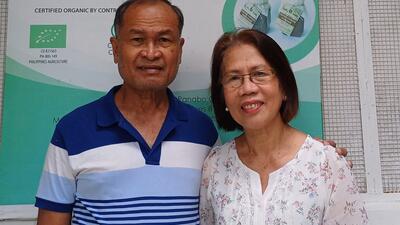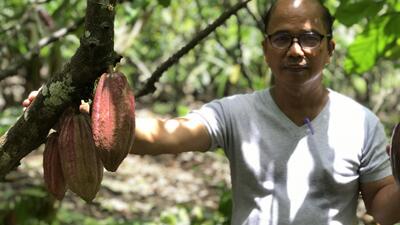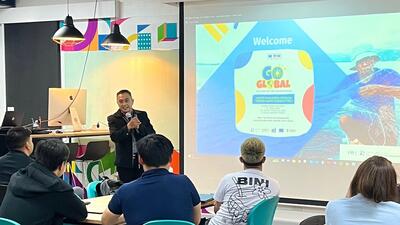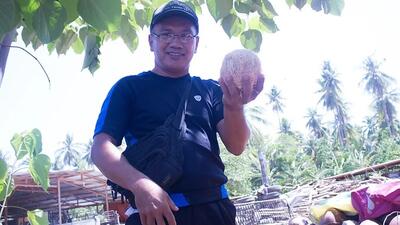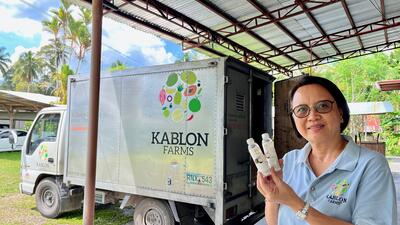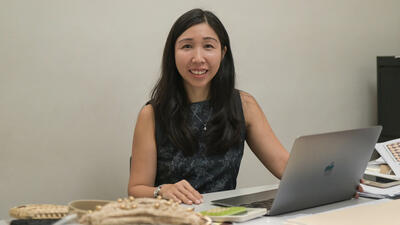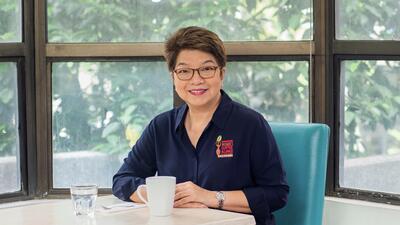


Theocolates goes to Europe
Capturing the heart of European chocolate lovers
True calling
Growing up, dinner conversations at home were mostly about business ideas; yet, it was during his Entertainment Technology studies in Pittsburgh, United States (US) that Philo Chua developed a keen interest in baking cookies and brownies.
And just as his interest in high quality food ingredients was developing, a chocolate shop opened in his area that showcased single-origin chocolates from around the world.
Philo was thrilled.
“This was back in 2007. I was emailing a friend about it and talking about how it would be interesting to have chocolates made from Philippine cacao. There's cacao in the Philippines but no one at that time was making premium chocolates out of it. While writing that email, the idea started.” Philo recalls how it all began.
Born to entrepreneur parents hailing from Manila, 44-year-old Philo returned to the Philippines with a mission.
“It was a natural transition for me to return home and seriously work on my business ideas,” says Philo Chua.
Niche product
To ensure a high percentage of success, Philo carried out due diligent study of many wonderful uses of chocolate as a main ingredient in making food products.
Significant attention was paid to product development owing to his passion in understanding product components and their appeal to consumers.
Before officially launching the company in 2010 with an initial capital of Php1M, Philo also focussed on various aspects of working with chocolate such as sourcing of the ingredients and business set-up, calling it Theo & Philo.
His chocolates started getting attention on the domestic market. Food bloggers took notice as well, which helped in marketing their products online.
Philo’s idea of using Pinoy cacao had worked well. The Philippines are endowed with a combination of very favourable environmental factors such as climate, soil, and topography, that allow local cacao to grow with very distinct flavours, making it the natural input for producing cocoa-based products in the country.
“We never sought out people. Buyers found us perhaps by word of mouth,” Philo stated.
Fast track to exports with dedication and support from the DTI
By 2012, two years from its formation, Philo was already exporting his chocolate products to key overseas markets. The company has exported chocolate products to Germany and the Netherlands in Europe. The company also exports to Japan, the US, and Taiwan.
The products are sold at coffee shops and specialty stores abroad. Domestically they are available at duty free and Philippine product shops.
Chocolate bars, chocolate coated mangoes, chocolate covered nuts, hot chocolate mix and chocolate spreads are included in the company’s product range produced at the facility in Valenzuela City, Metro Manila.
“Our best-selling products are our chocolate bars, in particular, the dark chocolate with green mango and salt, and the dark chocolate with siling labuyo (chili),” highlights Philo.
Philo recalls his first export to the European Union (EU) required a bit of work, as there were certain requirements to be fulfilled for the buyer in Germany.
“Labelling of our products was a particular focus for the EU market because of environmental sustainability concerns. Our distributor helped us with the translation and checking with our compliance with labelling requirements.”
In addition, Philo found the shipping and related custom requirements to be a challenge that needed to be overcome.
“We also got local FDA (Food and Drug Authority) permits from the onset. We applied with the government agency and complied with the requirements,” highlights Philo.
In the beginning of its exporting days, Philo engaged with the Center for International Trade Expositions and Missions (CITEM)— the export promotion arm of the Philippine government’s Department of Trade and Industry (DTI) by regularly participating in the International Food Exhibition (IFEX) Philippines.
This participation, in turn, connected him to various local and international buyers.
Registering with the DTI in 2010 at the start of business opened doors for Philo, including access to much-needed capacity-building, such as export seminars, which further increased his knowledge about regulations in various countries.
“I have found the DTI seminars an informative source of guidance towards exports,” Philo said, acknowledging support from DTI.
He recommends aspiring exporters actively engage with DTI and use its resources for international marketing.
The European exposure
“The best chocolates are from Europe. And if my chocolates make it to the European market, it is already an endorsement of top quality.”
The company that sources cacao mainly from Davao, competes in the marketplace due to the unique blend of Philippine flavour in its products.
“Our attractive packaging along with our product sets us apart from the big supermarket brands,” says Philo.
Being a bean-to-bar producer of chocolate is helpful in attracting European buyers, as this approach satisfies buyers’ needs and preferences for more transparency on products’ origins and quality.
EU requirements for food ingredients such as percentage of cocoa in chocolate bars and products are stringent. Philo has been increasing his knowledge about these requirements along the way.
Once he had reached compliance with such requirements, Philo got to learn about the EU Generalized System of Preference Plus (GSP+) and about EU’s Registered Exporter system (REX system), a system of self-certification of origin for exporters wishing to benefit from GSP+, through a Dutch distributor in Amsterdam.
“We obtained the REX registration number so that my business and buyers could benefit from tariff-free incentives that come with trading under the EU’s GSP+. It’s much more convenient than sending a Certificate of Origin with every order.”
Standing out
Theo & Philo now derives 20% of its annual business revenue from exports including 5% from the EU.
Throughout his successful export journey Philo has not forgotten those who worked with him to achieve international recognition for himself and for the Philippine chocolate. The company that began with three employees, now has become a team of 28 workers who are well looked after.
“We provide medical assistance to workers in the form of an annual allowance for health needs believing that health challenges leave communities vulnerable,” Philo remarked about his efforts to be there for his workers.
Philo wants to use his business acumen to present Pinoy chocolate to the world offering a product that holds its ground among international mass chocolate producers.
“What we offer is pure and affordable, and stands apart from chocolates from other countries because of the cacao grown in our country.”
The ARISE Plus Philippines project is enabling Philippine exporters to take advantage of European Union (EU) market access and the trade privileges granted under the Generalized System of Preference (GSP+). It supports the overall EU-Philippines trade relationship and trade-related policies.
ARISE Plus Philippines is a project of the Government of the Philippines, with the Department of Trade and Industry as lead partner together with the Department of Agriculture, Food and Drug Administration, Bureau of Customs, the Department of Science and Technology, as well as the private sector. It is funded by the EU with the International Trade Centre (ITC) as the technical agency for the project.




